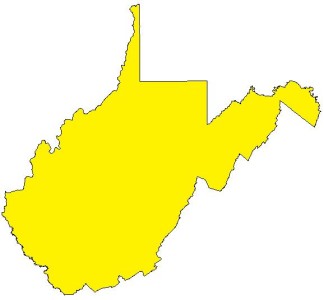As Predicted, Premature Suit to Block Clean Power Plan Implementation Fails
Legal Planet: Environmental Law and Policy 2015-09-09

 The case filed by 15 disgruntled states, led by West Virginia, seeking to block the implementation of the Clean Power Plan has been dismissed by the D. C. Circuit Court of Appeal as premature. Here’s an explanation of the legal and political basis for the lawsuit. As predicted when the states filed the lawsuit, the D.C. Circuit found that the states couldn’t meet the extremely high standards necessary to block the lawsuit before the regulations it challenged had been finalized though publication in the Federal Record.
The case filed by 15 disgruntled states, led by West Virginia, seeking to block the implementation of the Clean Power Plan has been dismissed by the D. C. Circuit Court of Appeal as premature. Here’s an explanation of the legal and political basis for the lawsuit. As predicted when the states filed the lawsuit, the D.C. Circuit found that the states couldn’t meet the extremely high standards necessary to block the lawsuit before the regulations it challenged had been finalized though publication in the Federal Record.
The states’ motivation for filing a lawsuit prematurely never seemed to be based on the actual law that governs whether a court will block regulations from going into effect. The law governing so-called “stays” of regulations simply doesn’t support the states’ position. Instead, the states and their allies were fairly clearly engaged in “judge-shopping”: their aim was to keep a three judge panel that had earlier heard yet another premature challenge to the Clean Power Plan, a challenge filed before the Environmental Protection Agency had even issued the final plan. The earlier challenge to the proposed rules, like the challenge that was dismissed today, was also dismissed as premature. But despite losing two challenges, West Virginia, other states that oppose the Clean Power Plan and their industry allies want the three judges that decided the challenges to decide whether the Clean Power Plan is legal. All three judges on the panel are Republican appointees and two of the judges voted to strike down an air pollution rule governing cross border pollution and, importantly, voted to block the implementation of the cross border rule pending a decision on the merits of the case. The U.S. Supreme Court later reversed the decision striking down the cross border rule in EPA v. EME Homer Generation.
We don’t yet know whether the states will succeed in their judge-shopping efforts. But given that the three judge panel has yet to invest significant resources in evaluating the merits of the Clean Power Plan, and given that the court seems unlikely to reward the blatant efforts by the states to get the judges they want, I’d predict that the judge-shopping efforts will fail as well.